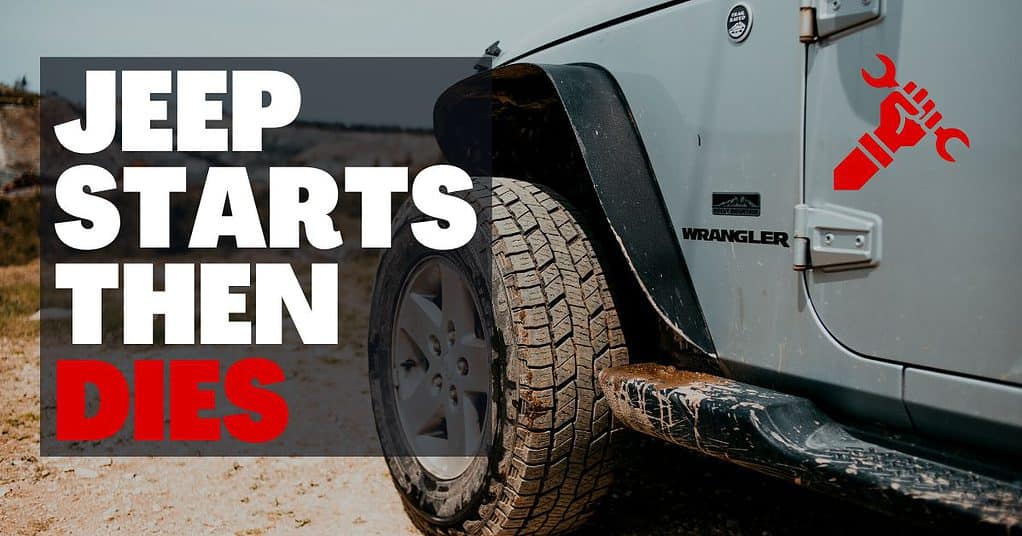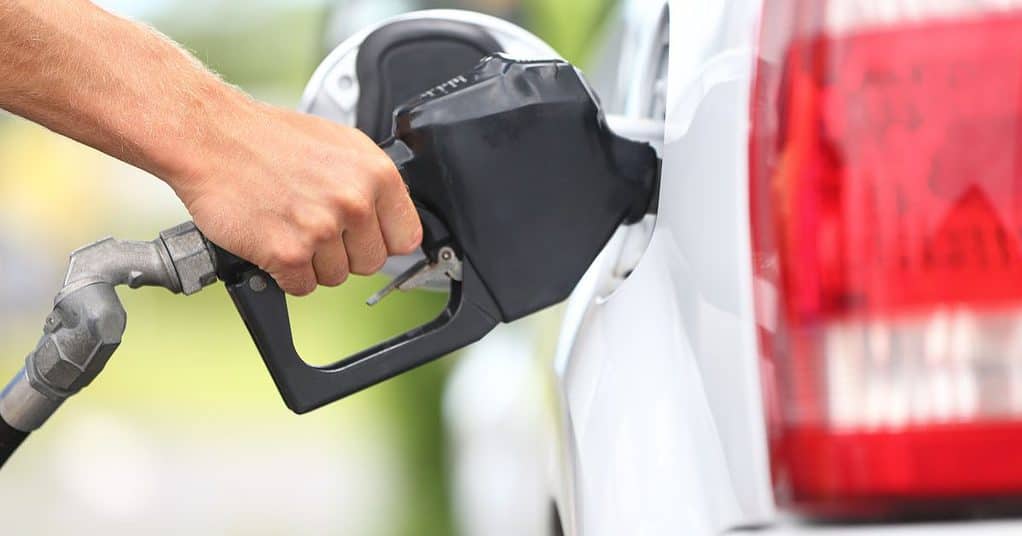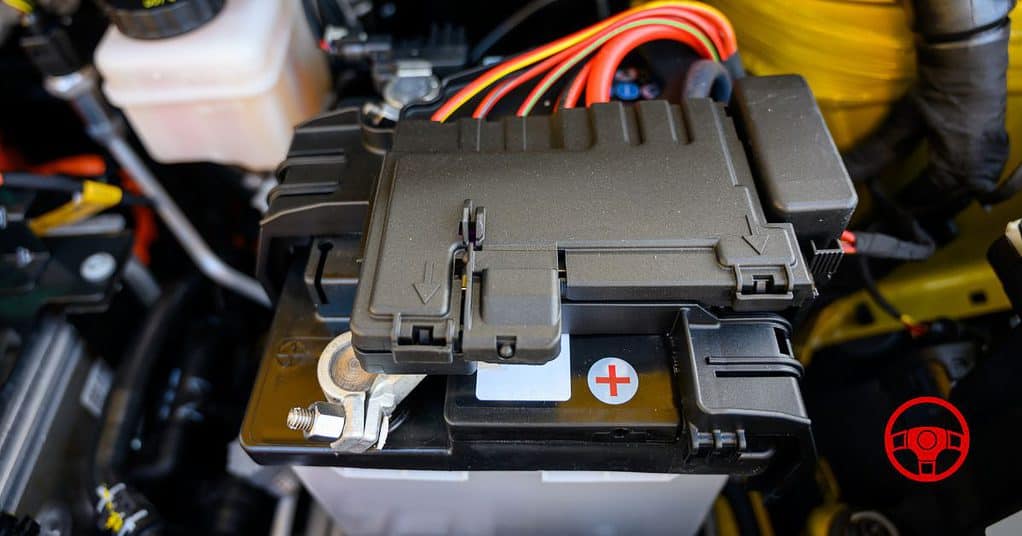Jeep Starts Then Dies Right Away: Here’s what to do!
If your Jeep turns on and then dies on you right away, there are a number of different factors that could be contributing to this problem.

Your Jeep most likely starts and then dies right away due to a lack of fuel, a drained battery, a faulty battery, faulty fuel injectors, faulty spark plugs, a faulty ignition switch or coil, a fuel pump leak, or a vacuum leak.
After extensively researching automotive maintenance, I have gathered enough information to determine why a Jeep may start and then die right away. In this article, we’ll be taking a closer look at how you can troubleshoot this issue with your Jeep to help get your vehicle back in working order.
Reasons a Jeep Starts Then Dies Right Away
Jeep is a praised manufacturer within the auto industry and they are credited with releasing highly advanced cars that are built to last. However, a common problem that many drivers experience is their Jeeps starting and then shutting themselves down immediately after.
It’s important to understand that this symptom can be connected to a variety of different issues. Some problems are relatively simple to fix and others require advanced repairs and maintenance.
To get your Jeep up and running, you need to run diagnostics on your vehicle and troubleshoot the issue further. These are the most likely reasons that your Jeep starts and then dies on you.
Lack of Fuel
Before we get into any technical troubleshooting techniques, I recommend starting with the most obvious solutions. Although most drivers rule this one out first, make sure that your Jeep has enough fuel for the engine to stay turned on.
Naturally, if your gas light is on and the gauge indicates that you are on “E”, it’s safe to say that this is behind the issue. You may find that your Jeep is able to turn itself on due to the leftover gas in the fuel rail, but this will only be enough to power on the engine for a few seconds; hence the vehicle shutting itself down immediately after.

Drained Battery
Your Jeep relies on its battery to turn itself on. If the battery does not have much juice, it will not be able to support your engine staying on very long. Charging your Jeep’s battery should fix this problem.
To ensure this does not happen in the future, make sure to use your Jeep’s battery power sparingly when the engine is not turned on.
You cannot solely rely on the battery to keep the electronic system running given that there is no support from the alternator. Remember to turn your Jeep’s engine on periodically if you are using the electronic system for more than a few hours.
Faulty Battery
If you charged your battery and the problem persists, you may have a faulty battery that fails to support your car’s engine staying on.

Jeep batteries generally need to be changed every 4 to 6 years. If it’s been a while since you swapped out your battery, it may just be old and need replacing. However, if the battery is fairly new, then it may just be faulty. If that’s the case, you should return the faulty battery and replace it with a new one.
Inspect your Jeep’s battery and look for any signs of corrosion. If you see any damage, then you will know the issue is linked to the battery.
Faulty Fuel Injectors
Your Jeep’s fuel injectors are designed to inject the right amount of fuel into the internal combustion chamber. The fuel injectors rely on sensors to know when to deliver fuel to the combustion chamber.
If the fuel injector sensor is damaged or faulty, it will fail to provide your Jeep with the fuel that it needs to stay on. Fixing this issue usually requires replacing the fuel injector sensors with new ones. Replacing a fuel injector sensor generally costs between $250 and $350.
With that said, your sensors may actually be working fine. A different problem could be that the fuel injectors are simply clogged. This is a less serious repair job that requires you to unclog the fuel injectors. You can expect to pay around $50 to $100 for this kind of maintenance with a mechanic.
Faulty Spark Plugs
Spark plugs are an essential part of your Jeep’s ignition system. When you turn the key in your ignition, the spark plugs generate the spark necessary for your Jeep’s engine to turn on.
If the spark plugs are faulty, you will not be able to properly turn on your Jeep, causing the engine to misfire or turn itself off immediately. You may find that your Jeep takes longer to turn on before the ignition system kicks in, which is generally a telltale sign of bad sparkplugs.
Luckily, replacing spark plugs is quite simple and affordable. Inspect each spark plug and look for any signs of damage or corrosion. Most Jeep owners can take care of this repair on their own, and replacing the spark plugs can cost as little as $16 for an entire set.
Faulty Ignition Switch or Coil
If you’ve already confirmed that the spark plugs were not causing the problem, your Jeep may fail to stay on due to an issue with other parts of the ignition system.
The ignition switch and coil are the most likely culprits in this situation. Take a close look at these components to see if you can spot any type of corrosion or noticeable damage.
You can find the ignition coil by opening the hood of your car where the coil should be located between the battery and the distributor. Whereas the ignition switch is where you insert the key to turn on your car. If you see any damage or corrosion on these components, they will need to be replaced.
Fuel Pump Leak
Fuel pump leaks are a common reason for cars starting and then dying immediately. The fuel pump is responsible for transferring fuel to all necessary components in your vehicle.
If the fuel pump has a leak, it will fail to deliver fuel where it needs to flow, which will prevent your Jeep from turning on properly. On most modern Jeeps, a fuel pump leak should be picked up by the vehicle without you needing to look for physical signs.
Take a look at your dashboard to see if the check engine light appeared. A check engine light should trigger when a fuel pump leak is detected. To fix this problem, you will likely need to replace the fuel pump or one of its components, which could cost anywhere from $200 to $1,000+.
Vacuum Leak
If there is a hole in your car’s air intake, it will disrupt the air-to-fuel ratio. Once the air-to-fuel ratio is off, your Jeep will not stay turned off correctly or may drive unpredictably.
The good news is that vacuum leaks are generally not very complicated or expensive to fix, with more repair jobs costing around $90 to $125.
Key Takeaways
- Always confirm that your Jeep has fuel when it fails to stay on after it starts.
- If there is fuel in your tank, the issue may be due to a drained battery, faulty battery, faulty fuel injectors, faulty spark plugs, faulty ignition switch or coil, a fuel pump leak, or a vacuum leak.
- Damaged or corded components will need to be replaced, with more repairs costing anywhere from $20 to $1,000.
